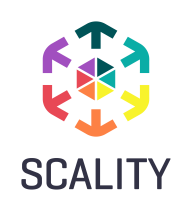

Find out what your peers are saying about Microsoft, Amazon Web Services (AWS), Akamai and others in Infrastructure as a Service Clouds (IaaS).
The value for money is good, and Microsoft Azure has positively impacted our operational costs.
When we use Microsoft Azure, it provides enhanced security from our perspective, though I am not certain about the financial return on investment or benefits for our users as I do not have that information.
I think RING's ability to maintain predictable costs while providing scalable storage solutions impacts our budget by allowing us to pay only for capacity.
For instance, while the cost per gig on a block storage platform may be $2, it's $1.50 for NAS, and only $0.50 for object storage, leading to a remarkable 75% reduction in costs by utilizing the Scality platform.
Scality RING has reduced our operating costs.
Microsoft needs to engage L3 and L2 in support when specified in service tickets.
The support from Microsoft Azure is good.
Regarding technical support from Microsoft, I find they are responsive and helpful, depending on which support package you're on.
I've always received responses within the required timeframe, the answers were technically relevant, and there was follow-up—people called us back to check if everything was okay and if the ticket could be closed.
Individuals such as Peter Mikolastik really make a difference by saying, 'Come on, what is the problem? I will help you,' rather than just brushing things off.
Technically, when we have major issues in P1, they are very responsive and we can't say that we don't get a response.
Microsoft Azure is not just one product; it is a platform with multiple products within Microsoft Azure, and I would say it is scalable and would rate it a nine.
The scalability of Microsoft Azure is excellent for growth and adaptation, depending on company requirements.
It has different kinds of designs that allow for management and deployment in multi-zones, offering both scalable and non-scalable options.
Upwards, I think, almost unlimited by what we can imagine.
I've never had issues with scalability.
We are relatively well informed about their new features, what will be implemented in future versions, and the scalability of the solution.
We noticed a few critical servers went down due to a Microsoft Azure-end hardware issue.
We are now migrating clients without the zoning into mandatory multi-zone deployments, so if one zone goes down, their application and database remain live.
Microsoft Azure is quite stable, but recent outages and security issues have slightly decreased my confidence.
It is a platform that is very stable at the customer level and does not generate incidents or blockages that you might encounter with standard storage solutions, where you can lose data.
I find that Scality RING is very stable because it allows for many maintenance operations without service loss.
There are factors that can cause Scality RING to become occasionally unavailable, but due to the system's resilience, it is capable of recovering or degrading gracefully.
Recent outages and security issues are also a concern, causing a decrease in confidence, especially when partnering with third-party companies.
The administrative side is suitable for technical people, but our finance and HR super users find it less user-friendly, as they prefer drag-and-drop features to build their own solutions without contacting IT.
There is still room for improvement in terms of pricing.
Encryption and data security need improvement. We don't have a solution for customers who need confidentiality.
They should prioritize quality over timeliness to minimize customer disruptions and not force customers into a cycle of fixes that interfere with daily work.
What we are currently missing and will be demanding in the new tender is an additional external backup of all data, ideally on a simple system, to safeguard against any severe local incidents so that we still have the data protected elsewhere.
Microsoft solutions might be cheaper than some services like AWS, but some solutions may be more expensive depending on the services compared.
Copilot is expensive based on recent pricing for our POC.
They have discounts and also provide promotions for a three-year reservation which comes with significant discounts on the infrastructure part.
Fortunately, in terms of the license, we are able to expand the disks without having to adjust the license.
In the end, it always depends on how much you pay for it.
Regarding setup costs and licensing, our initial experience is somewhat dated now as we made a comprehensive purchase, including hardware, software, and system setup, which Scality handled at the time.
Power BI, another feature of Azure, is extremely elegant and has robust features that support forecasting using R and Python.
If Microsoft gives a report, such as a server performance report in a detailed way, which shows what is consuming more CPU, memory, and disk IO, and network utilization during a particular time, it would be helpful to visualize that information.
What is very interesting in terms of scalability is the automatic possibilities to provision some new machines to be able to absorb the number of users we have in the system.
When a server is lost, the data is still accessible.
It is even better stored when there is only one copy on a system and there is a second copy on an immutability system, which is almost equivalent to backing it up on tape and taking it offline, making it completely inaccessible.
Scality RING has influenced our approach to scaling in different dimensions by providing a cost-effective solution for the tremendous amount of data we generate every day for each customer.
| Product | Market Share (%) |
|---|---|
| Microsoft Azure | 14.9% |
| Amazon AWS | 16.6% |
| Alibaba Cloud | 11.9% |
| Other | 56.6% |
| Product | Market Share (%) |
|---|---|
| Scality RING | 3.9% |
| Red Hat Ceph Storage | 18.4% |
| Microsoft Storage Spaces Direct | 7.3% |
| Other | 70.4% |


| Company Size | Count |
|---|---|
| Small Business | 140 |
| Midsize Enterprise | 53 |
| Large Enterprise | 148 |
| Company Size | Count |
|---|---|
| Small Business | 3 |
| Midsize Enterprise | 1 |
| Large Enterprise | 12 |
Microsoft Azure integrates services and offers flexibility, ensuring compatibility with diverse environments. Its scalability, security, and cost-efficient features enhance deployment and management, making it ideal for infrastructure services and application hosting.
Azure provides a comprehensive suite of tools for application deployment, virtual machine management, and data analytics. It allows seamless integration with Power BI and offers a user-friendly interface supported by detailed documentation and technical support. Though users appreciate its capabilities, they sometimes face challenges with costs, setup, and interface complexity, alongside integration and performance issues. Frequent updates and a learning curve are also noted, though Azure's cloud-based security and scalability remain critical for disaster recovery and business continuity.
What are Azure's key features?Microsoft Azure is widely implemented in industries like financial services, healthcare, and logistics for hosting enterprise applications and vital services. Companies utilize its capabilities for IoT applications, DevOps, and Kubernetes clusters, benefiting from its cloud migrations, data analytics, and active directory support.
Scality RING is the scalable and resilient object storage solution designed for modern workloads, providing seamless data protection against evolving cyber threats.
Scality RING leverages S3 object storage to meet unpredictable demands with a patented MultiScale Architecture that offers limitless scalability across capacity, performance, and more. It delivers end-to-end cyber resilience with CORE5 for ransomware protection, while its cloud-style economics and intuitive management empower enterprises to accelerate AI initiatives and optimize cloud deployments. Its flexibility is ideal for service providers managing extensive data needs.
What are the key features of Scality RING?Scality RING is extensively implemented in backup solutions across industries, supporting platforms like Veeam and CommVault. It aids in storage expansion and management of large data volumes alongside multi-site architectures. While not leading in AI spaces due to performance constraints, there's potential with faster disk support. It's also used in archives, binary lakes, multimedia services, and AI data lakes.
We monitor all Infrastructure as a Service Clouds (IaaS) reviews to prevent fraudulent reviews and keep review quality high. We do not post reviews by company employees or direct competitors. We validate each review for authenticity via cross-reference with LinkedIn, and personal follow-up with the reviewer when necessary.